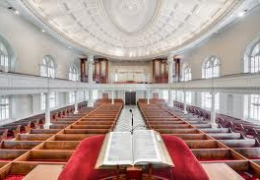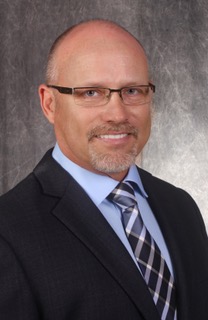 Transcript of The Dividing Line. March 6, 2018 at the 9:00 minute mark, Dr. James White.
Transcript of The Dividing Line. March 6, 2018 at the 9:00 minute mark, Dr. James White.
“I believe very, very strongly that the central act of worship of the Church is the full and careful and balanced ministry of the word of God to the people of God, gathered together to hear what God has to say. So meaningful, sound, solid exegesis – everything we do before and after – if there is anything after – is simply meant to heighten and to prepare us, to put us in the proper frame of mind to be obedient and to have hearing ears. Anything that we put into that worship service that closes our ears, distracts us, in any way shuts down our ability to hear the word is wrong – it is going the wrong direction. And the most important thing that a shepherd of the sheep can do is to faithfully communicate not just the part of the message you think is all fire important but if you really believe that all scripture (not just some) but all scripture is theopneustos (God breathed) then you need to deliver all of it… all of it. And that means covering some stuff that ain’t going to make people see gold-dust coming out of the ceiling. I mean there is some tough stuff to handle – there is some difficult stuff in there. And that means there are going to be services that are highly instructional, there are going to be services that are incredibly uplifting, there are going to be services that do bring you into the very presence of God in heaven and there are others that absolutely smack you down into the dirt, when you realize how much of God’s grace you take for granted, and how few of the duties are ours we actually pursue with the proper zeal of redeemed people. In other words, it is going to be balanced. And the balance is determined not by us but by what is found in the Scriptures given to us by the inspiration of the Holy Spirit – that canon of Scripture God has given to us – that… that is where our balance is to be found.”

